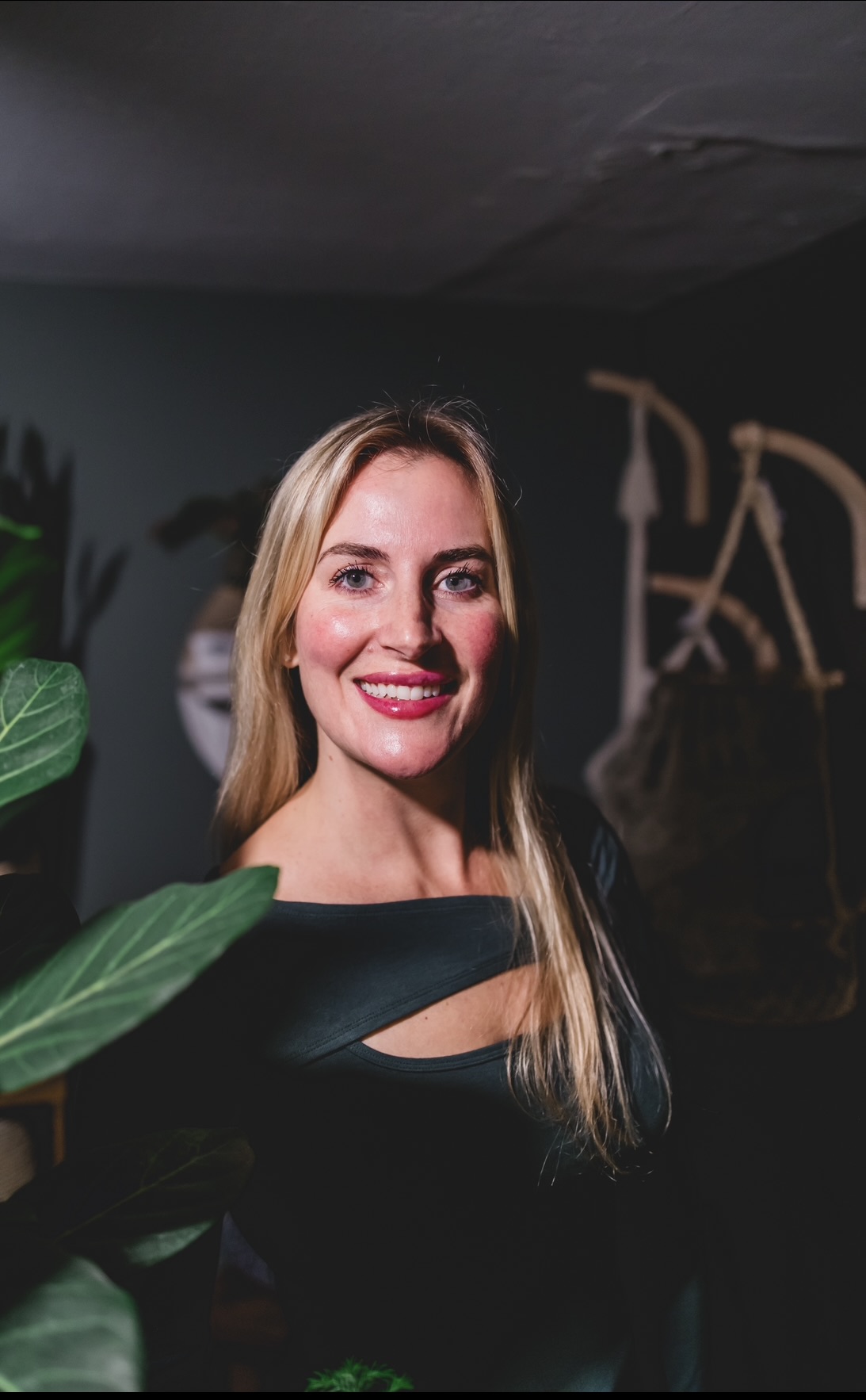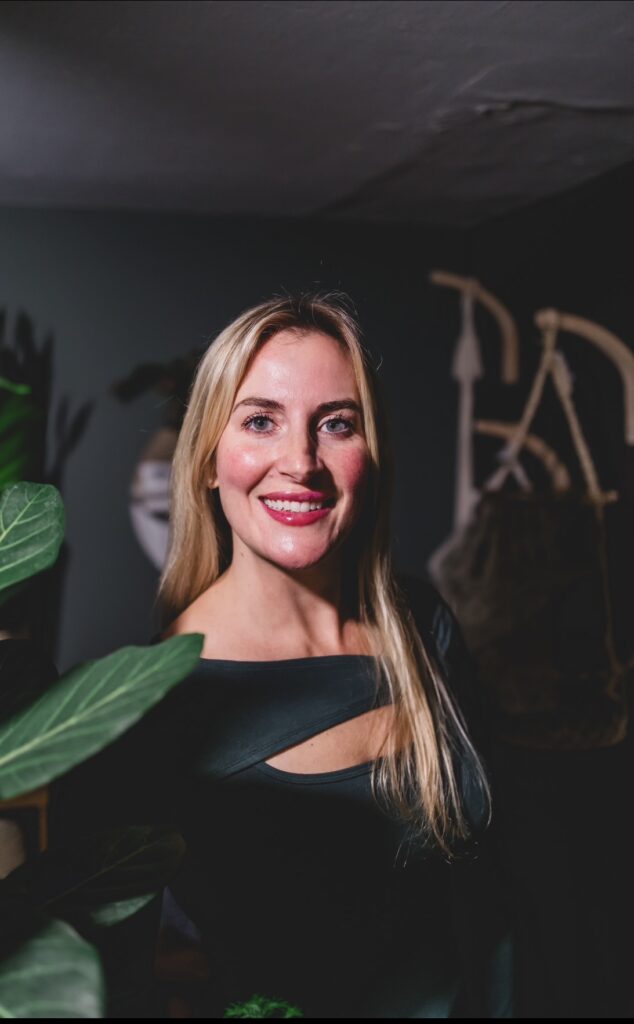Episode 276 27 Aug, 2025
Top 5 Things Leadership Needs From You So They Can Stop Bothering You and You Can Finally Focus on the Big Picture with Lisa Besler
-
 With Lisa Besler
With Lisa Besler

Top 5 Things Leadership Needs From You So They Can Stop Bothering You and You Can Finally Focus on the Big Picture with Lisa Besler
- Episode 276 | Top 5 Things Leadership Needs From You So They Can Stop Bothering You and You Can Finally Focus on the Big Picture with Lisa Besler 00:00
Let’s be real – building a leadership team isn’t just about hiring strong people. It’s about letting them lead. If you’ve ever found yourself answering endless questions from your clinical directors or leadership staff, wondering why they can’t just run things without you, this episode is for you.
In this week’s episode, I sit down with leadership expert and clinical director Lisa Besler to break down the top 5 things leadership teams need from YOU, the group practice owner, to thrive without constant oversight. We dig into the mindset shifts and practice management systems that help you step out of the weeds and into visionary leadership.
We’re getting real about control, trust, and how to delegate tasks effectively without everything falling apart. If you want to focus on the big picture and finally stop being your team’s go-to problem solver, this episode is a must-listen.
In this episode, we unpack:
- Why most owners think they’re delegating – but aren’t. Hint: If your team still needs your approval for everything, you’re not really practicing delegation in leadership.
- What true ownership looks like on a leadership team. Discover how to shift from being a decider to empowering clinical leadership to own results (even the messy ones).
- The one thing you’re likely skipping that’s sabotaging your team’s success. It’s not flashy, but it’s foundational – and it’s the heart of good practice management systems.
- How to train your team to think like leaders. We’ll show you what real mentorship looks like inside solid leadership development practices.
Why letting go is hard – and how to do it anyway. Lisa shares a powerful mindset reframe that helped her stop micromanaging and start trusting her people.
Building a sustainable practice means building a sustainable team.
And that means it’s time to take leadership development practices, delegation in leadership, and your internal practice management systems seriously. When you delegate tasks effectively, you create space for innovation, growth, and the freedom to finally focus on what really matters.
Tune in to the full episode now to hear Lisa’s top five game-changing tips – and start creating the kind of clinical leadership team that actually leads.
LINKS:
Need extra support? Join The Exchange, a membership community just for group practice owners.
The Group Practice Exchange Programs + Courses
The Accountability Equation™ Quiz
The Accountability Equation Book
Group Practice Forecasting Support GPT
CONNECT WITH MAUREEN HERMANN & THE GROUP PRACTICE EXCHANGE:
CONNECT WITH LISA BESLER:
SPONSORS:
TherapyNotes: An EHR software that helps behavioral health professionals manage their practice with confidence and efficiency. Go to therapynotes.com/r/thegrouppracticeexchange for two free months!
GreenOak Accounting: An accounting firm that specializes in working with group practices. Mention TGPE to get $100 off your first month!
Transcript: Lisa Besler
[00:00:00] Maureen Hermann: Welcome back to another episode. This week I am on with Lisa Besler, talking about the top five things leadership needs from you so that they can stop bothering you and you can finally focus on the big picture. I’m really excited about this episode. Lisa is a leadership consultant, a therapist. A clinical director and a national speaker who helps leaders build high performing people-centered teams as the facilitator of Elevate Your Leadership, a monthly membership development course.
[00:00:29] Maureen Hermann: She blends her clinical expertise with real world leadership strategy to create cultures rooted in trust, accountability, and mentorship, her work empowers leaders to move beyond micromanagement, embracing vulnerability, and driving lasting transformation through authentic connection. So I’m so excited to have her on.
[00:00:48] Maureen Hermann: Let’s jump into it. Welcome to The Group Practice Exchange Podcast, where we talk about all things related to group practice ownership. I’m your host, Maureen Ach. Therapy Notes is changing the game for mental health professionals. It’s an all-in-one EHR practice management and billing platform that actually makes running your practice easier.
[00:01:10] Maureen Hermann: From secure client messaging and scheduling to notes and billing. Everything’s in one place and their 24 7 customer support is truly unmatched. You get a real person, a live human every single time you call. Their latest update therapy fuel is a total time saver. It’s a built-in AI tool that helps you get through documentation faster.
[00:01:29] Maureen Hermann: Think progress notes from transcripts or summaries, contact notes created from secure messages and automated summaries of client history forms. Users are already saying that it’s saving them hours every week. Other new features worth noting is Automated recurring payments for clients, electronic billing for secondary insurance, and a growing outcome measures library to make tracking progress even smoother.
[00:01:52] Maureen Hermann: If you’ve been on the fence, now’s the time to try it. Head over to therapy notes.com. Click start My Free trial, and use the promo code TGPE to get your first two months for free. See why so many therapists trust therapy notes to support their practice, including me. Struggling with your practice’s finances.
[00:02:09] Maureen Hermann: Let me tell you about Green Oak Accounting. Green Oak is the industry leader in mental health accounting, and they know exactly what it takes to help your practice thrive, especially when you’re scaling up. Green Oak is set apart from the rest by their deep industry knowledge and top-notch advisory and CFO services.
[00:02:25] Maureen Hermann: Plus, they offer traditional accounting services like bookkeeping, tax prep, valuations, and so much more. Here’s what’s in it for you. Peace of mind, financial clarity, and the potential to significantly grow your practice and profits. In fact, green Oak has the most impact with practices looking for financial guidance when leveling up thanks to their CFO services, and they’re not just about crunching numbers.
[00:02:50] Maureen Hermann: They also offer a mix of resources like the Therapy for Your Money podcast, the Profit First for therapist book and self-guided courses to keep you informed and empowered in growing your practice. Ready to transform your practice’s financial health. Visit www.greenoakaccounting.com to explore all that they have to offer Green Oak accounting.
[00:03:13] Maureen Hermann: Your partner in financial prosperity.
[00:03:20] Maureen Hermann: All right. Welcome back everyone, and I’m so excited, Lisa, for me to be able to see you now after seeing you in person for the first time a handful of months ago. It’s good to see you. It’s good to see you too, and I’m excited to be here. Yeah, and we’re gonna be talking about, I love this topic because usually the episodes I do on leadership.
[00:03:39] Maureen Hermann: Are more about forming leadership teams or what the practice owner kind of needs to do to form a good leadership team. But this time we’re gonna be talking about like what leadership actually needs from you, business owner, listening group, practice owner, so that they can leave you alone and stop bothering you every time they have a question.
[00:03:58] Maureen Hermann: Because I’m assuming we’re gonna be talking about how they can have all the resources and things they need to be able to be successful so that they don’t have to sort of step in. So I’m really excited about this exactly. I wanna start with, I obviously. Have met you and, and know a bit about you, but for those that are listening, why is this a topic that you speak on?
[00:04:16] Lisa Besler: So, uh, a little bit about me. It’s something I feel really passionate about. So I spent several years working in community mental health, both as a therapist, but also as a manager. So I got the experience there of seeing how leadership runs in a large organization and things that maybe run well and things that run in ways that I would wanna modify or change.
[00:04:40] Lisa Besler: And I spent about 10 years total in that space. And since then I have been working for an organization called DBT of South Jersey, which is located in South Jersey, where I work as the clinical director. I’ve been there about seven years now, and I get to take on leadership. From a different perspective, and I just think it’s a really unique space to be in and something that I feel really passionate about.
[00:05:05] Lisa Besler: I see a lot of. Teams that I work with where maybe there is a practice owner who is like really good at being a therapist, and so they grow and they take on their own company and then they have to figure out, well, how do I teach someone to do the things that inherently would’ve I would’ve done? Mm-hmm.
[00:05:22] Lisa Besler: Previously that I can’t do now. And likewise, I see therapists who are maybe stepping into more of a leadership based position, but they haven’t done that before. They’ve always been. You know, indirect clinical care. So I’ve said like jokingly, I’m like the queen of the middle. Like I’m right in between.
[00:05:40] Lisa Besler: I’m like not in practice ownership, I’m in that clinical director space. I’ve got kind of both feet in both worlds, just a little bit. And so I like being that bridge. Yeah. To kind of bring it all together and help teams just run more smoothly.
[00:05:52] Maureen Hermann: I love that. So what we’re gonna be talking about are the top five things you think leadership needs from the practice owners so that they can run the business.
[00:06:02] Maureen Hermann: The way it needs to be run. So let’s start with one.
[00:06:06] Lisa Besler: So I think the first one that leaders and leadership really need are ownership paired with accountability. And so, you know, I see this come up in different ways where maybe leaders have been given a task, but they’re not. A hundred percent clear on the accountability piece, like what does it look like when it’s totally done?
[00:06:34] Lisa Besler: Yeah. Or what are the expectations about this? Or I hear from practice owners as well. I asked, you know, my leader to do this, but I haven’t heard anything since then. And so I think the ownership has to go hand in hand with like specific accountability measures, specific check-in points, knowing exactly what the final product expectation is gonna look like with whatever it is.
[00:06:57] Lisa Besler: Yeah. But the only way in my mind, for our practice owners to be doing less is really to step into. Probably the discomfort that comes with handing over ownership. Yeah. To their leadership team.
[00:07:13] Maureen Hermann: Yep. I was gonna say, I read years ago, Mike Michalowicz’s book Clockwork, and he talks about the difference between being a decider and a delegator.
[00:07:20] Maureen Hermann: And I think a lot of practice owners think they’re delegating to their leadership when in reality they’re still the decider, meaning that person doesn’t actually have any ownership. They might do the task, but if it. It doesn’t go well, or there’s a hitch somewhere along the way, they defer back to the practice owner and are like, what should I do next?
[00:07:39] Maureen Hermann: This thing didn’t work. Where with ownership, you are owning the results, including absolutely the good and the bad ones. And if there are bad results, I and I, I’m air quoting bad results because yeah, we all make mistakes and I think that’s the biggest way that we grow as leaders is through mistakes and then seeing.
[00:07:57] Maureen Hermann: That nine times outta 10, there’s not many things that are gonna break a group practice, like independent decision wise. And I think practice owners have a hard time truly delegating, meaning they watch leaders make decisions and then they’ll step in and be like, actually we, you should actually do it this way.
[00:08:12] Maureen Hermann: This is how I would do it. And they don’t give leadership like the room to grow, to try something the way their brain works to see it work or not work. And then also course correct if it doesn’t. And that’s the ownership piece.
[00:08:24] Lisa Besler: Absolutely. And I think one of the big things that practice owners can do is to really like stop deciding, stop deciding.
[00:08:31] Lisa Besler: So many things I’ve seen on different teams where it becomes, oh, well let’s just ask. Yeah, insert practice owner name. And I’ve even seen that infiltrate leadership teams, you know, where someone else then just falls into that role of the, let’s just ask.
[00:08:45] Maureen Hermann: Yeah.
[00:08:46] Lisa Besler: And so a lot of times I’ll say to people, you know.
[00:08:49] Lisa Besler: Well, what would you, even on my own team, well, what would you do if I wasn’t here?
[00:08:53] Maureen Hermann: Yeah. That’s what I deferred to like eight or nine years ago when I started bringing on a leadership team, and it was, I felt like the most annoying response to a question, but I felt like the more I say, what, well, what would you do if you have a question?
[00:09:08] Maureen Hermann: Come to me with a potential solution first. Exactly. It felt annoying because I obviously had an answer to probably almost every question that leadership had. But I didn’t wanna give it because it just takes that autonomy and ownership away. And eventually the more you say, okay, well what solution do you, potential solution do you have?
[00:09:26] Maureen Hermann: And nine times outta 10, I would be like, well try that out. Even if I had a different response or, yeah, that’s great. A different outcome or way that I would’ve gone about it. I would still say like, well, okay, try it out and let’s see what happens. And the more you do that, the less anxious they are about making a potential decision that they feel like will.
[00:09:44] Maureen Hermann: Make you angry as a business owner or make you disappointed?
[00:09:48] Lisa Besler: Yes, absolutely. I think that that removing the need for approval is so important, but. When that approval piece is there, I feel like the practice owner just ends up becoming a bottleneck. Yeah. Or what happens is exactly what you’re talking about, where your leadership team is actually just striving for your approval.
[00:10:08] Lisa Besler: Yeah. So they want the owner’s approval. They want the owner to like it. They want to do what they think the owner would want to do. Mm-hmm. But, you know, I’ll try to tell my own team or other leadership teams, you know, you’re. Practice owner is already a visionary. They already have their own ideas. They don’t need you to become them.
[00:10:26] Lisa Besler: They want to hear your ideas, you know, and I think that when teams have the space to do that, that’s how we can become more innovative and we can have new ideas that come to the table when people feel, you know, extending themselves, making mistakes. And that’s absolutely reinforced by the way, our practice owner.
[00:10:46] Lisa Besler: Responses or in this case doesn’t respond. Yeah. By not giving the answer or not giving the approval.
[00:10:52] Maureen Hermann: Yeah. I like that. What’s your second one?
[00:10:54] Lisa Besler: My second one here is to allow them to take risks, make mistakes, and don’t fix it.
[00:11:04] Maureen Hermann: Yep. The good segue into what we just said,
[00:11:06] Lisa Besler: it really is, right, like allow them to make the mistakes.
[00:11:11] Lisa Besler: Don’t swoop in and fix it, you know, if. A leader made an error, then one, that’s the accountability piece. Two. Mm-hmm. But two, that’s how people grow. They have to grow through making their mistakes, learning, changing their response next time. Also, I think when we talk about a sound organizational leadership.
[00:11:32] Lisa Besler: It’s important for leaders at all levels to model taking accountability and owning mistakes they make. So if you have a leader on your leadership team who makes a mistake, but then your practice owner is. Swooping in and fixing it. I think that for your team that’s under them, you know, it kind of shakes their confidence and also makes them question perhaps like, well, why aren’t they taking the initiative to fix this thing that they did?
[00:12:00] Lisa Besler: Yeah. And so I think that that’s a huge part of things too. It’s very hard though, I imagine, for all parties involved to tolerate that a mistake could happen.
[00:12:12] Maureen Hermann: I think one of the ways that, ’cause I’m, um, I, I don’t know that I would say I’m control, I’m definitely not as much anymore business wise, but I definitely felt like I had all the right answers or felt confident in making decisions in my business when I was first starting off and had a small leadership team.
[00:12:29] Maureen Hermann: And one of the things that I felt. Helped me actually delegate leadership was not seeing my business as like an extension of me, like my baby, my thing that I built. ’cause I feel like that made it harder. To like let other people air quote screw up. Right, right. I’m very comfortable screwing things up and being like, well, that didn’t work.
[00:12:49] Maureen Hermann: Let’s try something different. But I wanted to like stop other people from making mistakes. One, to make maybe life easier for me, but also for them so that, you know, kind of pick ’em up before they fall sort of thing. And I, I feel like I, what I realized was, is if I could get to a point where I didn’t view my business as this, like extension of me.
[00:13:08] Maureen Hermann: And that it was its own entity that I’m just a part of. Just like everyone else, it freed up the mental clog that made me feel like I needed to like swoop in before people made mistakes.
[00:13:20] Lisa Besler: Right. Absolutely. And I think that that’s natural, and I imagine a lot of practice owners feel that way. And again, going back to like reinforcing those patterns that we might not wanna reinforce.
[00:13:31] Lisa Besler: I think actually it reinforces that tentative approach from a leadership team where they don’t wanna make a mistake. Right? Right. And they don’t wanna let the person, like everybody wants to do a good job, I think. Yeah. You know? But let’s hope in leadership. For sure. Let’s hope. Let’s hope all of our leaders are wanting to do a good job.
[00:13:49] Lisa Besler: And we have to recognize that like mistakes are a part of learning and growth. I can think of so many things throughout my career where I think I’ve made a mistake or I would look back and I would do something differently. The good news is though, once I have that experience, I know how to do it differently, right?
[00:14:09] Lisa Besler: You know, I know what worked and what didn’t work, and so. Those experiences have helped me to grow and to be more of the leader that, you know, my practice owner might want.
[00:14:20] Maureen Hermann: Yeah. All right. What’s number three?
[00:14:22] Lisa Besler: Number three is to mentor and sit back. So what your leadership team needs from you is really to, okay, we just said don’t make decisions.
[00:14:34] Lisa Besler: Don’t make all the approvals. That’s true. However, your leadership team does need you to mentor them in different areas. So on my leadership team, we just introduced this topic of like the autonomy ladder, which is something that I coach to, and we talk about different levels, right? So a level one is like, tell me how to do it.
[00:14:55] Lisa Besler: Mm-hmm. I have no idea. And a level four is like, I’ve got this, I’ll come to you if I need it. Mm-hmm. And. Obviously two and three are somewhere in between. And so what we do is we use that with each other to kind of check in in order to gauge how much mentorship and support we’re needing. Yeah. So if someone on my leadership team comes in and they’re saying like, listen, you know, and we’ve all agreed we wanna be at a level three or level four, ’cause those are higher levels of ownership.
[00:15:20] Lisa Besler: But if we’re feeling like a level two, we may need a little bit more mentorship or a little bit more direction. And so even though we do want to encourage ownership, depending on what the task is, your leader may or may not have the skillset to yet do that. So a bit of mentoring, a bit of, you know, allowing them to come to you with questions if they do have them.
[00:15:43] Lisa Besler: And then sitting back.
[00:15:44] Maureen Hermann: Yeah.
[00:15:45] Lisa Besler: But having some kind of check-in point so that you’re speaking the same language in terms of competency.
[00:15:50] Maureen Hermann: Yeah. I think this ties into a common issue that I see when practice owners bring in leadership. It’s usually when they’re feeling burnt out and they just need to delegate some leadership.
[00:15:59] Maureen Hermann: And what they’re not doing is they haven’t created a good leadership training. Program, whatever word you wanna use. And so I talk about, with like my executive director, we did one year of training. Now obviously that’s the role that is, she’s pretty much the business owner, right? Mm-hmm. Like she’s makes every decision.
[00:16:20] Maureen Hermann: And so it was a year where the first six months I was still doing all of the work, but she was there to watch and, and see how I, and ask questions and see how I made decisions. And then the second half of the year. It was switched, but I was still with her her the whole time. But she was starting to make the decisions.
[00:16:37] Maureen Hermann: Obviously the amount of time changes, like our supervisors don’t need a year of this type of training, but there’s definitely not, you know, put in that situation and like talk through job description and show them the manual and then go like, let me know if you have questions. I think. Part of them feeling level three, level four in autonomy is also tied to like, how much time do you invest in training them to actually lead really well?
[00:17:04] Maureen Hermann: First in the beginning, but then also ongoing. And I think a lot of practice owners don’t invest enough time because they, well, one, they’ve been in that role so long, that leadership role themselves that. A lot of things might feel basic and assume that that’s information they already know. Like I think about like as a clinician, when I first hired people, I’d been a clinician for a while and I was just like, obviously people know how to do notes.
[00:17:28] Maureen Hermann: Right, right. But that’s not actually true. That’s actually true. No, but when you’ve been a therapist for 15 years and then, and then you bring someone on notes is like so easy, right? Yeah. And so I think in leadership it’s the same thing as we assume things are obvious. Clear and not needing to be trained on like basic parts of being a therapist or a leader, when in reality, probably 99% of that stuff actually needs to still be trained, even for someone who’s been a leader in a different business.
[00:17:55] Maureen Hermann: So I think that ties in.
[00:17:57] Lisa Besler: Yeah, absolutely. I think the clearer someone can be, the better. Because that’s just gonna help everybody to be on the same page. Right. And I hear that a lot too. You know, someone will say, oh, well, you know, I hired someone to be, you know, my clinical director or to be this admin person, and, but they’re not exactly giving me, you know, what I want.
[00:18:16] Lisa Besler: Yeah. And then that comes back to the question, well, like, you know, what structure are you using to make sure that you’re on the same page? Right. Or you’re checking in about metrics that you want them to own and you know, produce with. Yeah. Instead of just
[00:18:30] Maureen Hermann: task. Like fine hand tasks, but with a metric, with a measurable outcome that you want.
[00:18:35] Maureen Hermann: Absolutely. Yeah. Alright, with number four,
[00:18:37] Lisa Besler: so important. So number four is that leaders need your vulnerability and your hard conversations. So say what you need. Step into the vulnerability of being a human. I often hear from. People who are in leadership positions or management positions, when they’re talking about their practice owners, you know, they almost think they’re like Superman or Superwoman.
[00:19:05] Lisa Besler: Yeah. They’re just like, oh, well they’ve got it all and they know how to do everything, and I bet they would have this. Allowing your leadership team to know, Hey, I actually don’t have this all figured out, or I really do need support around, this is so helpful. Yeah, because it’s permission giving for the leadership team of, oh, okay, wait, they didn’t have all the answers, which makes room for me to come up with some ideas or answers or solutions.
[00:19:30] Lisa Besler: But I think it also just like helps to increase team investment. It helps to increase people’s interest in the bigger picture or the bigger vision when there’s that piece of vulnerability. And I think the hard conversations are so important because if something’s not going well, it’s like we do wanna call that out early on.
[00:19:48] Maureen Hermann: Also, leaders are probably leading people too, which means if we’re not modeling how to have hard conversations, what’s the likelihood that they’re comfortable having hard conversations with me as the leader of the business, but also with their own teams that they’re leading. Exactly. I can
[00:20:06] Lisa Besler: see so many times when, you know, if you have a leadership team of people who really do get along and they really like each other, they fall into the trap of like, everybody’s just trying to be nice.
[00:20:15] Lisa Besler: Yeah. And there needs to be some natural conflict or disagreements. I’m not saying like a shouting match, but just a differing of perspectives in order for things to grow and move forward. Yeah. And that’s all a part of having hard conversations, you know? Well, I, I don’t actually think it should go this way.
[00:20:33] Lisa Besler: I think it should go that way. You know, prove me wrong. Convince me.
[00:20:35] Maureen Hermann: Yeah. But also that means that there’s, when that can happen, it means there’s safety within the team to feel. Comfortable to be able to dissent to something.
[00:20:45] Lisa Besler: Absolutely. And our practice owner is gonna model that through their vulnerability.
[00:20:50] Maureen Hermann: Yeah.
[00:20:51] Lisa Besler: Right. And through their openness. Yeah. So it kinda like goes all the way down in all levels.
[00:20:54] Maureen Hermann: Yeah, that’s number five.
[00:20:56] Lisa Besler: Number five is systems to follow. So we’ve gotta have systems you were saying earlier, you know, even when you hire someone and they have a strong leadership skillset. There still may be things that they’re not aware of.
[00:21:10] Lisa Besler: I always say we don’t know what we don’t know. Right. Like you might not even know that you don’t know something to come to someone with the questions. Yeah. Because you just didn’t realize. Yeah. So if it’s not a laid out in some kind of way, then I just think it’s so easy for things to get missed. Yeah.
[00:21:29] Lisa Besler: Systems are so helpful. I joke. For our practice owner. She had come to us at one point in time with like a system to make a system. And I was like, okay, well that’s, you know, it’s a little repetitive, right? Like, well, we got it. All right, I’ll try this out. And then I was creating a system, rolling something out and I was like, this is so helpful.
[00:21:50] Lisa Besler: I need the system for the system to make sure that the systems are easy to find and that we can, and it made so much sense. Right? And recently someone on our leadership team, we were talking about something and. Somebody said, well, is this a system or is this not a system? We have to think about that. And she said, listen, I don’t really love systems.
[00:22:09] Lisa Besler: She’s more like a creative type. And she’s like, but this should be a system. We need our systems. Yeah. You know, but so they just allow the framework for everything else to flow. And I also think one of the big things is right, practice owners don’t want their leaders coming to them all the time. That’s a part of why they’ve brought them onto their team.
[00:22:31] Lisa Besler: Having a system or a place to go, it becomes the middleman. The place that someone can look before they have to go to their practice owner with a question.
[00:22:40] Maureen Hermann: It helps create confidence with the leadership team. Confidence, because they have a space to defer to. Yep.
[00:22:46] Lisa Besler: Absolutely.
[00:22:47] Maureen Hermann: Yeah. Okay. I know we’re close to the end of the time here, and I want people to get a sense of where they can reach out to you, what kind of things that you’re offering, if they’re looking for leadership related support.
[00:23:00] Lisa Besler: Absolutely. So the easiest way to find me is on Instagram. Lisa builds leaders. You can find me there. I also run a monthly. Leadership program development training. So I meet with leaders from all over the place, virtually once a month. And you can find [email protected]. So that has all of the information, but if you find me in one of those two places, I can direct you in terms of, you know, consultation or coming to our Elevate your leadership.
[00:23:32] Lisa Besler: Meeting, which is fantastic. I really enjoy that. So those are the two easiest places to find me. And of course at DBT of South Jersey where I practice as a clinician and clinical director. So any of those places you’ll land on me.
[00:23:45] Maureen Hermann: Awesome. Well, I appreciate you coming on and sharing your information. It was good to see you as always.
[00:23:50] Maureen Hermann: Yeah. Good to see you too. And thank you. Thank you so
[00:23:52] Lisa Besler: much. I appreciate being here.
[00:23:55] Maureen Hermann: Thanks for listening. Give us five stars on whatever podcast streaming service you use, and I’ll see you next week.
Thanks For Listening
Thanks for listening to The Group Practice Exchange podcast. Like what you heard? Give us five stars on whatever platform you’re listening from. Need extra support? Join The Exchange, a membership community just for group practice owners with monthly office hours, live webinars, and a library of trainings ready for you to dive into. See you next week.
Resources
Here are the resources and guides we recommend based on this episode
GreenOak Accounting
Specialized Accounting for Private Practice
At GreenOak Accounting, we offer accounting services that cater specifically to solo and group therapy practices. Our services range from bookkeeping to budgeting & forecasting, Profit First support, profitability analysis, payroll, tax preparation, compensation analysis, and much more.
Through working with over 100+ therapist clients, we have seen what works and what doesn’t, so our team can help guide you on the path to financial. Our specialized services can be customized based on the size and needs of your private practice.
For more information about our packages and the different ways to work with us, please visit our website at https://www.

Therapy Notes
*Need a good EHR for your group practice? TherapyNotes is it. I’ve been using it for years in my own group practice, and it does really well when it comes to having the features group practice owners need. Try it out for FREE for 2 months by clicking here.











